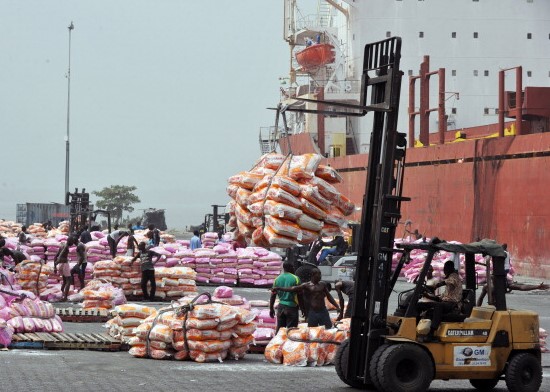Ghana’s annual average imports of wheat flour has hit a 55,000 metric tonnes representing a 160% increase over the last ten to fourteen years.
According to a data released by the Ministry of Food and Agriculture, since 2004 there has been 160% increase in the yearly import volume of the commodity.
As of the period between 2007 and 2013, the foreign exchange requirements for wheat grain and wheat flour imports ranged from US$118 US$ to 214 million, according to the Food and Agricultural Organization (FAO).
A recent analysis by the country’s Ministry of Food and Agriculture (MOFA) indicates that should there be a 10% substitution in the flour composition of wheat in be considered (in Ghana), this would translate into between US$11 and 21 million of foreign exchange savings.
It is on this basis that MOFA is embarking on measures to commercialize the production of high quality cassava flour as a substitute for wheat flour in the making of various products such as bread, pizza, cakes and pastries, etc.
With its characteristic soft and powdery nature as well as its mild and neutral in flavour, Experts have suggested that, Cassava flour is a perfect substitute for wheat flour and ideal for gluten-free, grain-free baking and cooking.
The only challenge is that currently, the scale of production, consumer acceptability and product quality of cassava flour in the country is still at the very low. Reason being the absence of a policy, legal framework for the use of these products, inadequate consumer awareness and as well as a general lack of emphasis on the commercial viability of cassava value addition – particularly in the farming communities.
Commenting on the development, Acting Director, Directorate of Crop Services at of the Food and Agriculture Ministry, Osei-Akoto, said: “The background to the study was generally to examine the possibilities for HQCF to partly substitute wheat flour in the preparation of composite flour, taking into consideration economic and social advantages, safety and quality standards as well as the legislative framework requiredâ€.
According to FAO’s Country Representative, Dr. Abebe Haile-Gabriel - Cassava is one of five food security crops prioritized by Ghana's Food and Agricultural Sector Development Policy. The cassava value chain contributes about 22% to Ghana's agricultural GDP.





